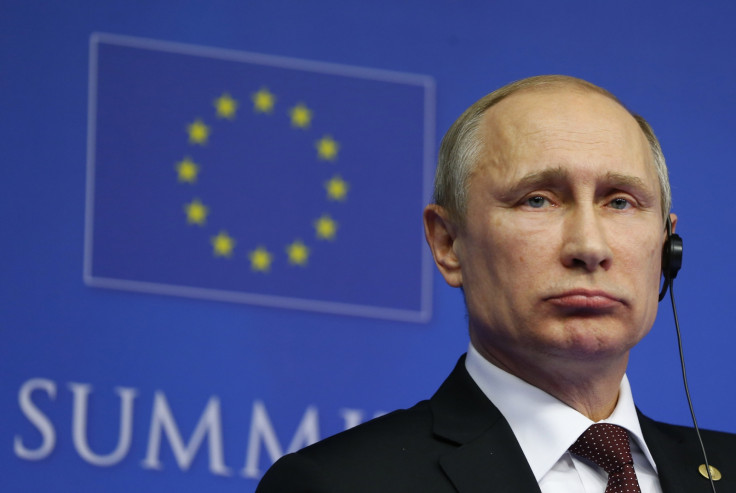Eurozone Suffering 'Ongoing Malaise' With Ukraine Crisis Set to Hurt Troubled Economy Further

Output growth across the eurozone sunk to a nine month low in September, another sign that an economic recovery in the currency bloc has failed to take hold.
It will leave monetary policymakers at the European Central Bank (ECB) scratching their heads over what more they can do to end what has been called an "ongoing malaise" across the eurozone, having already boosted its stimulus and slashed rates several times to little avail.
And sluggish growth may weaken further as the Ukraine crisis and tensions with Russia worsen, with a pyrrhic financial sanctions battle between the West and the Kremlin that threatens to undo any recent economic progress by the 18-member state eurozone.
Researcher Markit said in a flash estimate that its monthly output index for the eurozone came in at 52.3, a slowdown from August's 52.5 and the lowest since January. Any reading over the neutral 50 mark represents growth in economic activity.
"The survey paints a picture of ongoing malaise in the eurozone economy," said Chris Williamson, chief economist at Markit, whose index is compiled from surveys of purchasing managers across the three main sectors: service, manufacturing and construction.
"With growth of output and demand slowing, employment once again failed to show any meaningful increase. Such torpor meant prices continued to fall as firms fought for customers, which will inevitably heighten concerns that the region is facing deflation."
Williamson said Markit's surveys imply eurozone economic growth of just 0.3% "at best" in the third quarter of 2014 "buoyed by a 0.4% expansion in Germany but dragged down by stagnation in France and sluggish growth in the rest of the region".
"There are also worrying signs that growth could slow further in the fourth quarter," he said.
"Inflows of new orders in the manufacturing sector are declining again, dropping for the first time in 15 months, and business expectations about the year ahead turned down in the services sector, led down by a slump in confidence in Germany.
"Concerns about the Ukraine crisis, related Russian sanctions and worries about the single currency area's general economic plight appear to be having an increased impact on the eurozone economy. The danger is that the ECB's efforts to stimulate the economy will prove ineffective in the face of such headwinds, which are exacerbating already-weak demand."
The ECB has cut interest rates to record-lows and is pumping billions of euros of stimulus into getting banks to lend to small businesses, in turn hoping to fuel a bounce in employment and growth.
But so far the stimulus appears to have failed, with inflation hovering just above zero, weak monetary growth and painfully high unemployment in many parts of the eurozone, such as Greece and Spain.
Banks are cutting back on their lending to meet strict new European banking rules brought in after the financial meltdown. They must hold more capital as a buffer against their lending to prevent any need for taxpayers to step in again and bail out failing institutions, as happened during the crisis.
In order to do this, banks are reducing their lending to businesses and consumers rather than build up bigger capital buffers.
In Ukraine, war is ongoing in the east of the country where Russian-backed rebels are trying to break away from Kiev rule. Russia, which has financial and political interests in Eastern Ukraine, has covertly supported rebel groups with arms and military personnel.
Ukraine erupted into turmoil after street protests in Kiev brought down the corrupt President Viktor Yanukovich after he eschewed closer ties with the European Union (EU) in favour of building on existing links with Russia.
To punish Russia for its intervention in Ukraine, the West have brought in a number of sanctions against it, such as export bans of defence equipment and capital restrictions on some of its wealthiest citizens with ties to President Vladimir Putin.
In response, Russia, which is Europe's biggest supplier of gas and does a large amount of trade with EU member states, has brought in its own sanctions. Among them is a ban on Western food imports.
© Copyright IBTimes 2025. All rights reserved.






















